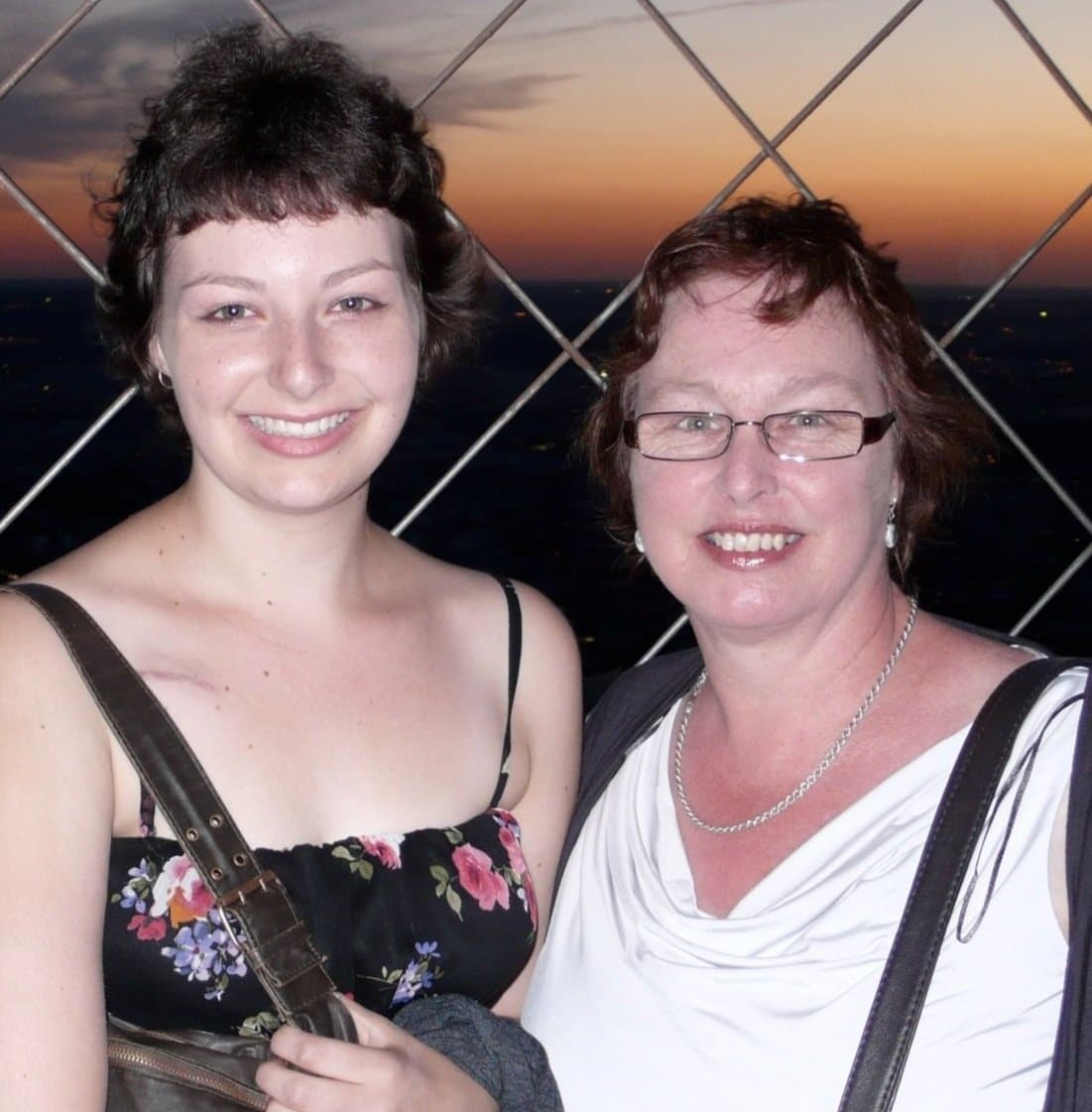
Mandy Basson is the Executive Director of Sock it to Sarcoma!, an organization established by her daughter Abbie, who was diagnosed with Ewing’s Sarcoma at the age of 17. This is Mandy’s story of caring for Abbie and of the ongoing work of Sock it to Sarcoma!
Abbie was diagnosed with Ewing’s Sarcoma in May 2009, when she was 17. I quickly found that caring for a young adult with cancer was a unique experience. Although not a legal adult at diagnosis, Abbie had a huge appreciation for and understanding of what she was going through, and we listened to her and facilitated things, so they were done how she wanted them to be, especially when it came to setting up Sock it to Sarcoma!
What we experienced with Abbie’s cancer journey was fragmented care that involved multiple locations. Surgery was not an option for Abbie, so she had to have both chemotherapy and radiation therapy for weeks, which on occasions were on the same day but scheduled at two different sites. The teams at each site did a great job of making sure the process was a smooth as possible but moving around between treatments was far from ideal.
Looking back on our journey now, I can see how lucky we were. Abbie had an oncologist who treated her as a person, not a patient, and also as an adult . He made an effort to find a clinical trial she could participate in following her relapse. We also had a cancer nurse coordinator from the start, which is very rare. She not only had an interest in Sarcoma, but she specialised in young adult patients which made a huge difference. We’ve come to realise that our experience is not standard, even now, and many people, especially those with rare cancers, must do the work themselves to find clinical trials and the support networks needed to help them on their journey.
This year, during WA Sarcoma Awareness Week, ten years since we established Sock it to Sarcoma!, I heard from a young person who was navigating his cancer journey at the same time as Abbie. He was reflecting on the time they first met, which was facilitated by a nurse who thought the two of them would appreciate one another’s support. This person talks, as Abbie did, about the introduction being a turning point in the journey; knowing he was no longer alone boosted his morale and lifted his spirits.
Abbie established Sock it to Sarcoma! based on two guiding principles: equity and access. While we were fortunate to meet outstanding clinicians and specialists and were directed to support networks when needed, not all families and patients have this experience. This is especially the case for those on the rare cancer journey, where (ten years ago) some were met with the response ‘there are not enough people with your cancer for us to be able to focus on it.’ Abbie was adamant that no matter where you were in WA, whether you could pay or not and whether your cancer was prevalent or rare, all patients should have access to the clinical and support services needed to navigate the journey with the best possible outcome.
A Comprehensive Cancer Centre in WA is important on many levels. It would allow for a teamwork approach to clinical care that is standardised, with the person at the centre, plus it would align the services and community aspects that are vital to support the person and their family on their journey and accessed long after the clinical care has finished. When you are navigating the cancer journey, your oncologist is not, and cannot be, the sole person involved. You need a whole interdisciplinary team to support and guide you. You also need to be able to engage with others on the same journey as you. This support makes you a stronger person mentally, which then helps with the physical demands of cancer diagnosis and treatment. A Centre like this would also provide much better access to personalised care and clinical trials, which is hugely important. Many patients with rare cancers need access to these trials, just as Abbie did, because the first line of treatment can so often fail. A Comprehensive Centre would also bring together all of the smaller support and advocacy groups, like Sock it to Sarcoma!, so we are visible to patients and families needing our support. Taking away the need to hunt for services while navigating the cancer journey would be a huge step forward.
Ten years on, accessibility and equity continue to be hugely important to the team at Sock it to Sarcoma!, as does research and raising awareness. The idea of a facility that provides West Australians a standardised whole care package, where you walk through the doors and everything you need is in one place, run by experts who make up interdisciplinary teams that will bring the best course of action and treatment, informed by research, to the patient can only mean good things for individuals and families navigating their cancer journey.
To read more about Abbie’s story and the work of Sock it to Sarcoma!, click here.
